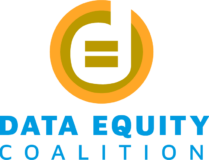
Issues
“High-quality, comprehensive data on the full range of populations are essential to closing gaps in care as it creates opportunities for payers, health care providers and patient advocates to design and implement targeted solutions to meet the needs of perpetually underserved groups.”
NMQF President & CEO Dr. Gary A. Puckrein
As the U.S. embraces a rich heritage of diversity, collecting and reporting accurate patient data methods are critical to providing the best health care options – especially for historically underrepresented communities.
We are grateful to the Office of Management and Budget (OMB) for updating data collection standards that previously remained static. After 30 years we now have made progress with the ability to better identify and address some health disparities. Our work remains ever vigilant. We look forward to further refinement and input into data submission through advocacy for agency Action Plans on Race and Ethnicity required by OMB as a critical part of the guidance issued by OMB. As a collective, we will continue to assess and clarify the update of SPD 15 and build a unified community that remains resolute to ensure all Americans are included in and represented by equitable data identification and application.

Despite having nearly 700,000 individuals in the U.S. identifying with one or more race’s subgroups, disaggregated data is largely unavailable or unreported for AA and NHPI people, masking and increasing underlying health disparities.

Despite being younger in average age than other population groups, LGBTQIA+ individuals more commonly report being in fair or poor health than non-LGBTQIA+ people and report higher rates of disability and chronic disease.

Only 1 in 3 Black/African Ancestry people who need mental health care receives it, even though rates of mental illness are similar among Black/ African Ancestry, Hispanic and white adults.

Infant mortality in the United States is comparably higher among several racial and ethnic minority populations than it is among whites.

Research has shown that Black/African Ancestry and Hispanic people face greater barriers in trying to gain access to health care services.

Native American women are 2-3X more likely to die from pregnancy-related causes than white women.


